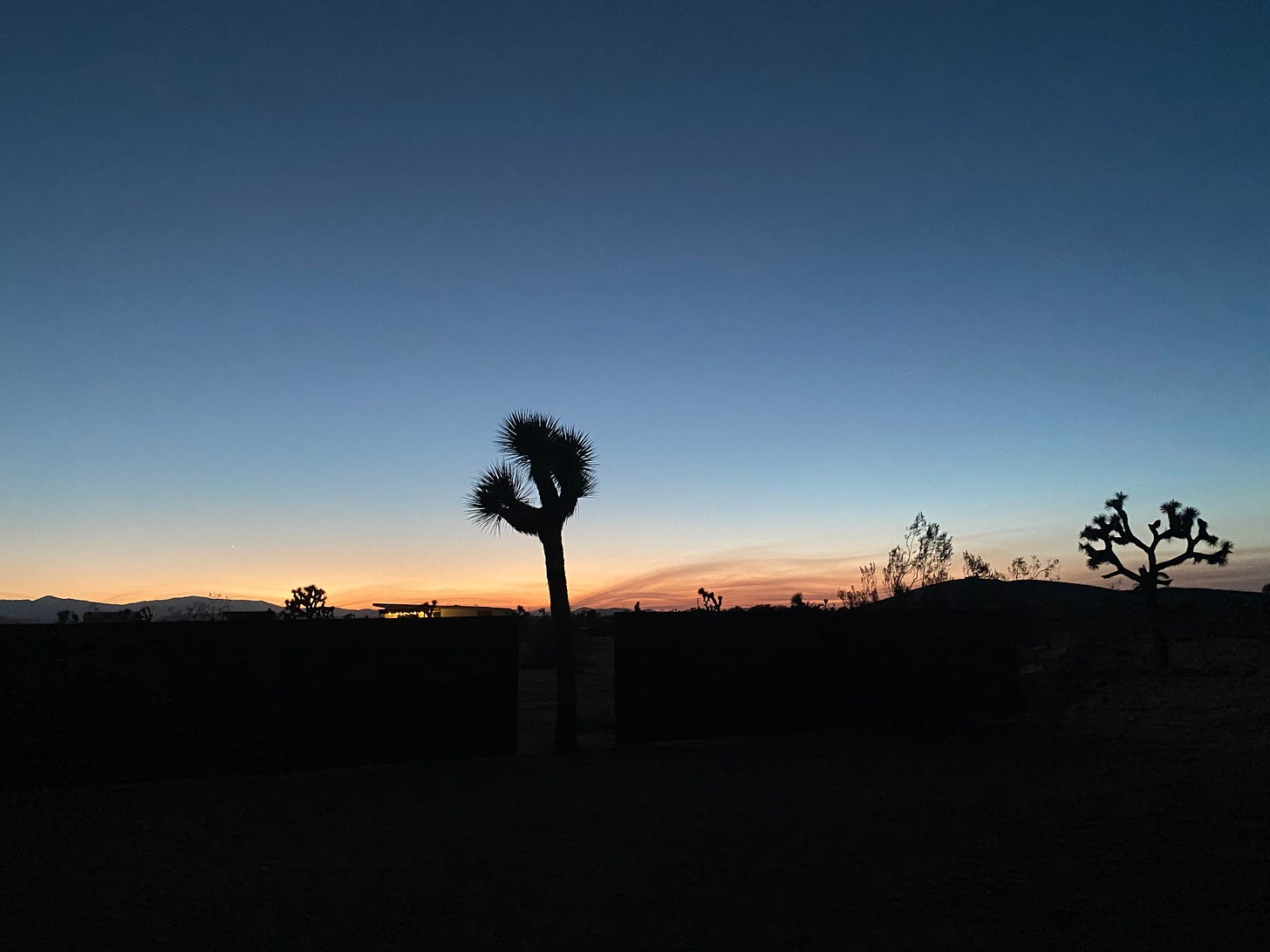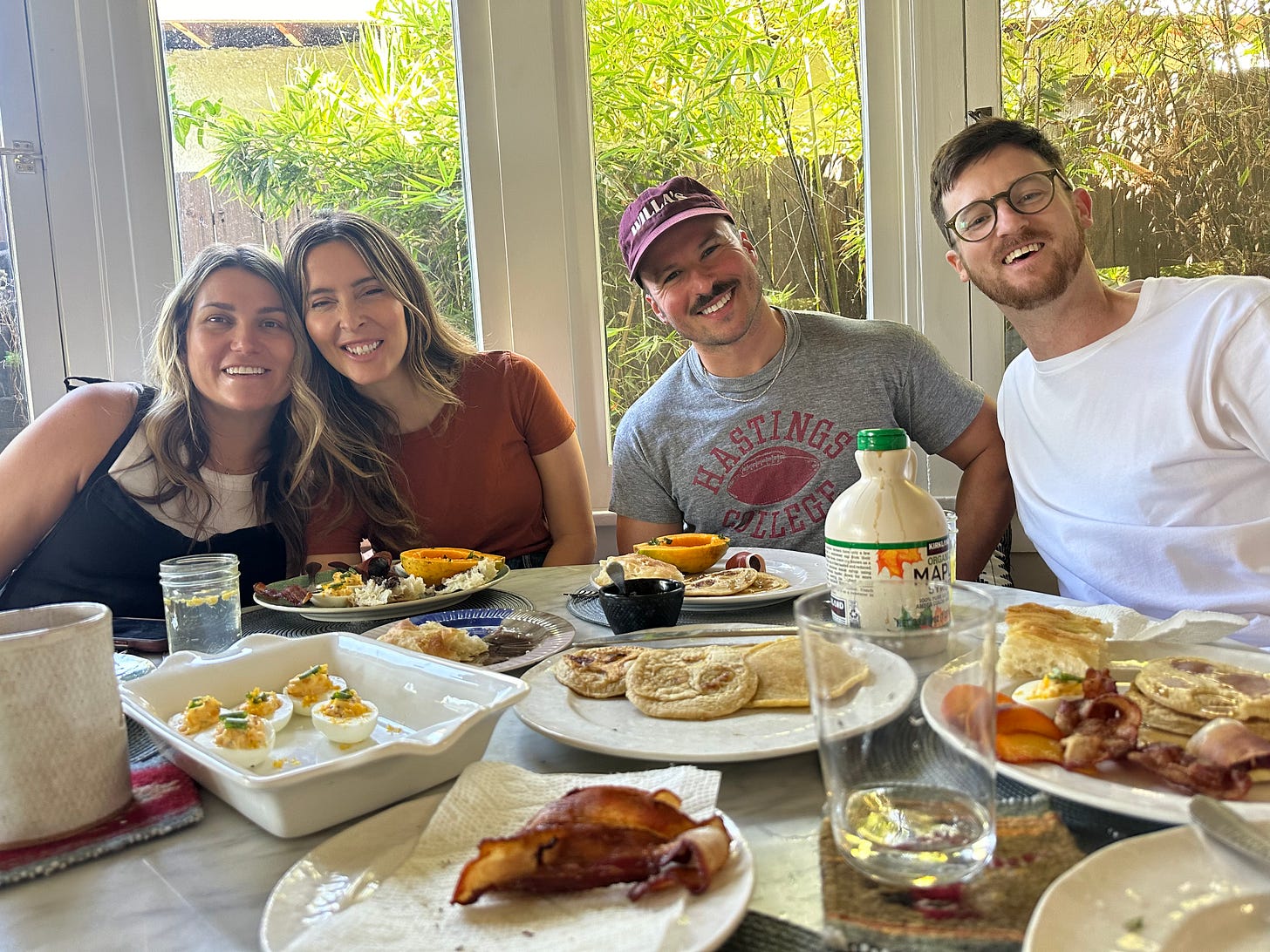Hi!
Last year I wrote a long-ass post detailing a bunch of books I read and loved. Since then I’ve read a bunch more, but instead of going through all of them, I’d like to talk about the last three that have had a disproportionate effect on my understanding of the world.
Actually, these three books have blown my damn mind.
Breaking The Habit of Being Yourself by Dr. Joe Dispenza
Breath: The New Science of a Lost Art by James Nestor
Trying Not to Try by Edward Slingerland
Breaking The Habit of Being Yourself
Epiphanies tend to appear with perfect timing in my life, at least it feels that way lately. This book came to me through a former colleague with whom I’d reconnected after being let go from my job, and within minutes of starting it, I was on a journey of enlightenment.
Breaking the Habit (BTH) details the cumulative learnings of the author’s work in neuroscience, epigenetics, and quantum physics first, then provides a practical guide to meditation and manifestation.
The thesis is that if we want changes (or different results) in our lives with some intentionality, we must first tap into our subconscious, identify and surrender our ingrained mental and behavioral patterns, like fear in my case, before attempting to replace them with better, more constructive patterns.
I picked “fear” because while I’ve clearly taken risks and done hard things in my life, in my day to day, fear prevents me from being more outgoing, confident, and self-promotional. I decided that fear has held me back, and I would like to release myself from fearful thoughts, attitudes, and behaviors.
What struck me is how smoothly Dispenza writes, explaining and reiterating concepts in ways that make them incredibly easy to digest and remember.
I learned that I’ve been meditating all wrong. His practical guide has been instructive in detailing exactly how one properly establishes a meditation practice, composed of several steps that build on one another until the action becomes automatic and natural—the same way we all have learned to drive or to fold clothes.
I picked a new place to sit in order to meditate instead of lying down in bed (a no-no if you don’t want to associate meditation with sleeping), and I’m using the induction technique of a head-to-toe body scan in order to drop my brain waves to a lower frequency and tap into that flowy internal world that most of us stumble upon accidentally, if ever.
If you’re curious about meditation, about manifestation, or enjoy human biology, I highly suggest you grab yourself a copy.
Breath: The New Science of a Lost Art
I started this book while I was still mid-way through BTH, because I couldn’t wait to read what an entire book about breathing could possibly contain. I should also note that I found this book through the Hidden Brain podcast, which I plan to highlight in an upcoming post about my favorite podcasts!
Similar to Joe Dispenza, author James Nestor presents an empirical and historical review of human anatomy and how the way we breathe has affected health outcomes for thousands of years. He takes the reader through skull fossil comparisons, how soft foods have changed our facial structures, and conducts his own breathing experiment—10 days of only mouth breathing vs. 10 days of only nasal breathing. He ends by providing a practical how-to for various breathing and strengthening exercises.
Breath is a fascinating and compelling read, especially since so many people suffer from breathing problems like sleep apnea, asthma, and chronic sinus problems. I’m lucky I’ve always been a nose-breather and rarely have problems breathing through my nose.
One thing that caught my attention is a section about oxygen vs. carbon dioxide. It turns out that our bodies use CO2 for so many things, the “metabolic waste material” might actually be more important for optimizing our body’s functions than oxygen alone.
If you’ve ever been challenged by breathing problems in your life, or want to hack your own cardiovascular capacity, this is a must-read.
Trying Not to Try: The Art and Science of Spontaneity
Finally, Trying Not to Try (TNT) is another Hidden Brain recommendation. Author Edward Slingerland is a professor at the University of British Columbia and studies Chinese philosophy, religion, cognitive linguistics, and science-humanities integration.
Unlike the other two books, TNT veers into the rarified world of Confucian, Daoist, and Buddhist teachings. Slingerland starts by defining the concepts of wu wei (pronounced ooo-way) and de (pronounced duh), which are, respectively, a state of being and a virtuous quality people possess when they’re able to glide through life in an effortless, magnetic way. Steady, gracious, and quietly influential.
Some say wu wei is being like water, flowing through anything and moving around obstacles by being flexible. It’s often compared to the concepts of “flow” and “being in the zone.” De is the charismatic, virtuous power one possesses while they’re in wu wei that influences others as if by grabbing them and eliciting a response or a change of mind and heart. If you have de, people like and trust you.
Have you ever wondered why when you try hard—for a particular outcome, to be charming or funny on command—the thing you’re aiming for feels so elusive? Slingerland links ancient teachings to modern life and recent scientific research into which parts of the brain are active and inactive when wu wei and de are present, and why our day-to-day happiness relies on spontaneity and ease rather than constant, conscious effort and striving.
If you’re like me and enjoy a touch of the esoteric, this book will be a fascinating primer on Chinese philosophy and how it can be applied to the present moment.
Final Thoughts
Sometimes I’m worried about the future of books. Everyone and everything seem to be locked into their screens, attuned to pixels and rapid-fire snippets of “content,” flickering and flooding our brains with blue light. I guess I'm more old-fashioned the older I get, yearning for simplicity and focus rather than endless streams of entertainment. The tactile quality of a book in my hand just feels right, like a soothing balm on my over-stimulated brain.
For years I wasn’t a reader. I come from a family of readers, but I abandoned a regular nighttime reading ritual for my phone and the TV until a few years ago. Lately I’ve come to the conclusion that reading carefully crafted language on paper is still the best way to absorb and retain information, especially if there are pages you want to dog-ear, concepts you want to revisit, or active exercises to test and try (as there are in these books). The bottom line is that activating your imagination through reading is more creative and expansive than looking at a screen.
Certainly there’s a place for digital content, and it’s not likely to go away. I have another post brewing about my favorite YouTube channels in fact. But I think long-form books are crucial for unpacking complicated subjects and nuanced issues that can’t be broken down into 30-second clips.
Watching the summary TL;DR of a philosophy or concept will tell you the “what,” i.e., the conclusion or the final recommendation. But reading the book will give you the “how” and “why,” i.e., all the background, the context, and logic for arriving at the conclusion.
How amazing is that? And all it requires is stepping away from screens and into the world of your own mind.
These are some of my favorite local bookstores if you live in the LA area:
Skylight Books (Los Feliz)
Book Soup (West Hollywood)
Des Pair (Echo Park)






